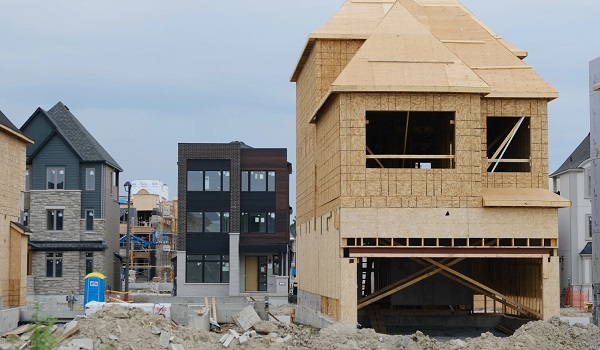London, Ont., reinventing a new housing type that will help its homeless population
Those who visit London, a pleasant city of 420,000 in the heart of Southwestern Ontario, will see grand old churches, yellow-brick century homes, lovely parks and soaring new apartment towers. They will also see shocking scenes of human suffering.
On downtown streets, drug users lie passed out on the sidewalk or propped against storefronts drawing on crack pipes. On the banks of the Thames River, ragged clusters of tents shelter scores of people with no other home. Half-clothed people in a state of mental confusion are a common sight.
The triple-headed crisis of addiction, homelessness and mental illness that is afflicting so many Canadian cities has come to London with a vengeance. The homeless population has reached 2,000, double the figure before the pandemic. Around 250 people have died on London’s streets over the past four years.
A lone shopping cart sits on a Dundas Street sidewalk.
London has employed all the usual remedies: shelters, soup kitchens, outreach patrols, safe-consumption and safe-supply programs for those who are addicted to drugs. The crisis has only deepened. So the city has decided to try something different. Later this year, it is expected to open the first in a series of special respite hubs designed to get people off the streets and onto a better path.
Instead of being open to all, the hubs will specialize in housing those with the deepest and most intractable problems.
Instead of being concentrated downtown like most other services for the vulnerable, they will be scattered around London, in comfortable neighbourhoods as well as needy ones.
Instead of putting visitors in dorms and subjecting them to a host of rules, the hubs will give them rooms of their own and, within reason, let them live as they wish, even if that includes using drugs. Pets are allowed. Nurses, counsellors and mental-health workers will be on hand.
Backers say there is nothing quite like it anywhere in Canada. Doubters, and there are many, say the hubs will only spread the problem around, bringing it into family neighbourhoods while doing little to solve the issues that put people on the street in the first place.
Mayor Josh Morgan argues the city had no choice but to take a new tack. “The status quo was not working in the city of London,” he says.
On that, at least, Londoners agree.
This article was reported by The Globe and Mail














